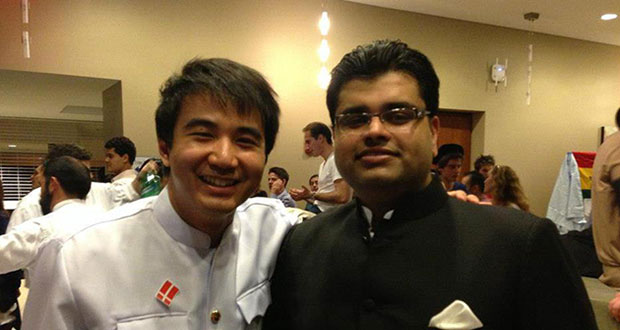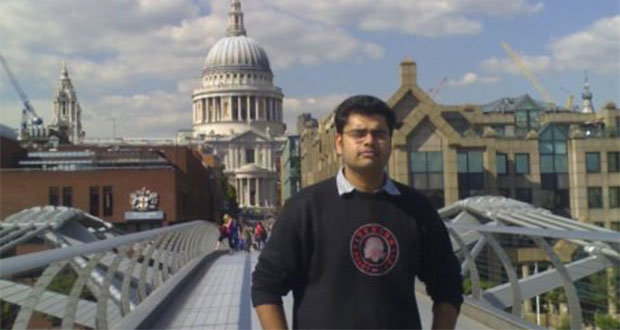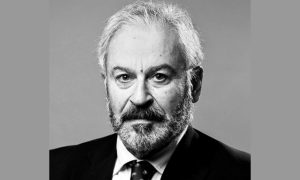Amit Singh Chauhan graduated from Delhi University in Economics and Law in 2009. Thereafter he worked at the chambers of Gopal Subramaniam for 2 years and then went on to pursue an LL.M from Harvard.
He has cracked the New York Bar Exam and is currently working as an associate at the chambers of N. Hariharan.
In this interview we asked him about:
- Experience of diploma courses from NLSIU and LSE
- LL.M from Harvard and cracking the NY Bar
Tell us a bit about your childhood and pre-college life as well as educational background. Did you have lawyers in your family?
I did my schooling from St. Columba’s School, New Delhi. After the class X boards, I was offered a scholarship by CBSE for securing an almost perfect score (99/100) in science and also received the Vedanta Mehra Memorial award for the same. I chose to pursue science with economics and later on, went on to do B.A. (Hons) Economics from the University of Delhi. Apart from this, I was actively involved in various extracurricular activities. I represented my class in swimming, cricket, quizzing and have also played chess at the state level.
I do have lawyers in my family. My father, Mr. Ram Singh Chauhan, is a practising advocate in the Delhi High Court and Supreme Court of India and I am also married to a lawyer.
Tell us a bit about your work life, your dreams and aspirations?
I am presently working with Mr. N. Hariharan, Sr. Advocate and practicing mainly criminal law with him before various judicial forums in Delhi. He ensures that his juniors burn the midnight oil. An average working day for me is 14-15 hours. Whatever little time I get when the courts are on vacation, my father ensures that I help him with Civil Litigation and Arbitrations. Overall, I am a pretty ambitious person. My aim is to be a leading arguing counsel in this country and I ensure that I put in the effort required to be one.
How was your experience of studying in a college that has churned out many eminent lawyers, judges and academicians?
In one word it was ‘great’. The professors are highly accomplished and recognized nationally as the best in their respective fields. They are easily accessible and always willing to help. Apart from academics, there are a lot of extracurricular activities on offer like mooting, legal aid clinics etc. Further, you are encouraged to participate in social, political and cultural activities which the Delhi University has to offer. I believe all of this helps in the overall development as an individual and in becoming a better lawyer.
After completing your LL.B, you pursued Diplomas from NLSIU and LSE. According to you, what value addition do diplomas do to a law student/lawyer?
I pursued these Diplomas while I was pursuing my LL.B. At NLSIU, I pursued a post-graduate diploma in Intellectual Property Rights and at LSE, I attended the summer school for Introduction to Corporate Law & Governance and Intellectual Property Rights. These Diplomas, apart from providing you an edge in terms of employment, are greatly helpful if you intend to specialise in a specific field.
My aim in pursuing these Diplomas was a bit different. I always knew that I wanted to be a litigator. I believed that I should be adequately equipped to argue or assist in any and all kind of matters. It is for this reason I pursued these Diplomas.
You also worked in the chambers of Mr. Gopal Subramanium for more than 2 years. How was the experience of working under such an eminent advocate?
Working closely with Mr. Gopal Subramanium, former Solicitor General of India in advising and representing the Government of India, State Governments in India and major public sector undertakings involved in the Power Sector, Oil and Natural gas, Mining and Extraction, Telecommunication, Insurance and Finance etc., has helped me acquire sound knowledge of different laws and regulatory frameworks in India and abroad. Mr. Subramanium is a great mentor and ensures that his juniors are constructively employed while they are a part of his chamber. He is easily accessible to his juniors and goes out of his way to help them. I consider myself very lucky for having been granted an opportunity to work with him so early in my career.
It is often said that classroom education and college mooting is totally different than actual court practice. What are your views in this regard?
Classroom education and college mooting are essential in acquiring the basic understanding of law and practice. However, it is also true that Classroom education and college mooting gives you only a bird’s eye view of what actual practice is like. The pressures, stakes, strategies and technicalities of real practice are far more complicated than Classroom education and college mooting.
 After that, you went on to pursue LL.M. from Harvard Law School? How did you choose the universities that you applied to? What were the other universities of choice?
After that, you went on to pursue LL.M. from Harvard Law School? How did you choose the universities that you applied to? What were the other universities of choice?
After working with Mr. Gopal Subramanium for over two years I went on to pursue my LL.M. at Harvard Law. I wanted to pursue a General LL.M. so I chose the universities in the following order: by their rankings, the subjects which I intended to study, and the faculty. In the UK I had applied to Oxford and Cambridge, and in the United States, I had applied to Harvard, Stanford, Cornell, Columbia, UPenn, and NYU. My advice to people who intend on applying for a LL.M. is that not only the subject you intend on studying matters but also, the overall reputation of the university.
How was your experience and what courses did you study at Harvard?
From day 1, Harvard was overwhelming in terms of academics and the sheer amount of activities which were on offer. You would wake up in the morning with emails from different societies and departments informing you about the events/guest lecturers for the day. Even if I wanted, I still could not attend to all which I wanted to. My only regret is that I did not have more time at Harvard.
I studied courses on Constitutional Law, International Arbitration, Mergers & Acquisition and White Collar Crimes amongst others. The teaching methodology involving mock transactions, trials and investigations greatly enhanced my abilities in understanding the finer points of a legal transaction. I went on to receive Honors in my International Commercial Arbitration class and my Paper on White Collar Crimes.
Did you consider taking up a job in the USA itself? What were the opportunities available to you?
I was always keen on coming back to India and practice. However, the only time I did consider taking a job in USA was after the Bar exam, which by all standards was late. I did manage to get interviews with a couple of leading law firms in New York and Washington, D.C..
LL.M. students have the New York job fair in January. However, most are looking to hire from countries whose legal market is open unlike India. For an Indian, it is double the effort if he/she is looking for a job and even after that there is no surety.
You have also done B.A. in Economics (Hons.) from Delhi University? Has this specialization in Economics helped you in any way in your legal studies?
Yes, I have. It was particularly helpful to me while developing or considering policies/laws and their impact on individual and society while working with the Solicitor General. It also comes in handy from time to time, when I am involved with Banking, Finance or other commercial matters.
You have recently cleared New York Bar Exam, it is said to be the world’s toughest bar exam. How strenuous would you say it was preparing for the exam? What are the rules and strategies you followed in order to crack the exam?
It was quite strenuous especially as I started late and I knew it was my first and final shot at it. Further, it becomes more strenuous by the fact that you have about 50 days after you graduate to prepare 56 subjects/topics. I would actually give credit to my wife, Shikha, who was there to support me and ensured that I kept my cool.
To prepare for the Bar I took classes offered by Barbri. There are others like Kaplan etc. who offer preparatory classes for the Bar. I followed their schedule as much I could and also, ensured that I had enough time for left for self study. Since, I started my preparation later than others I had to put in 14-16 hours a day to prepare for the Bar. People who are serious about the Bar should start preparing immediately after the exams to ease the pressure.
What are the minimum educational qualifications for an Indian to be eligible for the New York Bar exam? What are the job opportunities available after clearing it?
I believe a year of education from ABA accredited institute is the minimum qualification for an Indian. Also, you are required to study specific subjects and have a minimum number of credits before you can sit for the Bar. I think people interested in taking the NY bar should check the New York Bar website for the pre-requisites.
(The requirements could have changed. Kindly check with the NY Bar/website for the exact requirements)
Your chances of securing a job improve greatly. However, this does change the fact Law firms prefer J.D. students and international students from countries whose market is open. Thus, for Indians it will still be difficult.
What would be your advice to law students from traditional universities who want to do well in their career?
I am going to keep it short as I am too young to advice anyone. My advice would be to work hard, work smart and be creative in your approach. Test your limit every time you think you have done your best.
























